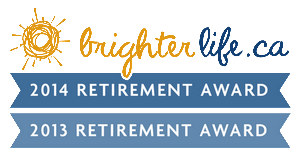As they
approach retirement, Canada's younger boomers (aged 50-59) are focusing on
health concerns over finances, with 70 per cent ranking changes to their
physical health highest on the list of top challenges they expect to face as
retirees, according to the 2013 RBC Retirement Myths & Realities Poll (PDF
file). What this means for the Federal
government is that they need to pay attention to issues around Health Care.
In Canada
Health Care is a provincial responsibility but the Federal government gives funds
to help maintain National Standards. It
is clear that the way forward and on issues is through partnership and
collaboration between the provinces and the Federal Governments.
On the one
hand, you have the federal government saying problems with health care are
because of how it is being delivered by the provinces; the provinces say it is
because they are not getting enough money. No matter what the jurisdiction, the
parties will have to work together
"Younger
boomers are more health-conscious as they near and enter retirement. Watching
their older relatives and friend’s age has made this generation more aware that
good health is not something to take for granted," said Amalia Costa, head
of Retirement Strategies & Successful Aging, RBC. "What they aren't
yet as aware of, however, is that health issues of their loved ones may have an
impact on their retirement plans - not only on their finances, but also in
terms of time commitment and emotional stress. It's important to work with a
financial advisor to take all aspects of aging into account when making future
plans."
Finances
ranked a distant second, with 57 per cent expecting changes to income to be a
challenge during retirement. Within these rankings, men (73 per cent) are
particularly concerned about changes to their health, compared to women (66 per
cent).
The RBC poll,
now in its fourth year, continues to underline how expectations do not always
match realities. For example, while four-in-10 younger boomers (40 per cent) do
not expect health or disability constraints to ever change their lifestyle or
independence, almost three-in-10 (27 per cent) report that a significant health
issue or decline has affected them or someone in their family within the past
year.
At the same
time, 42 per cent of these younger boomers responded that being a caregiver to
another adult was a support role they had already performed, were doing now or
expected to do in future. Some of the impact of that caregiving, already
experienced or expected by younger boomers, include:
- Significant increase in stress levels (50 per cent)
- Significant out-of-pocket expenses (24 per cent)
- Moving/making accommodation changes (18 per cent)
- Reducing number of paid hours worked (15 per cent)


